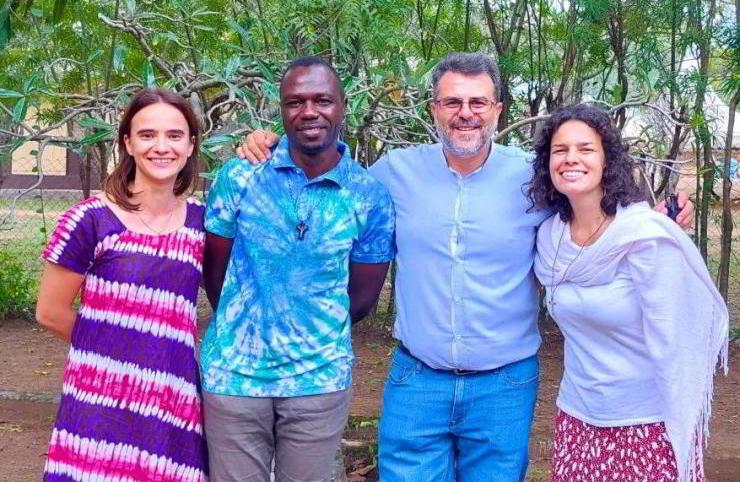Three Comboni Lay Missionaries share their experience: “The importance of walking alongside people, respecting their ideas and rhythms, no matter how difficult.”
The rainy season is a time of expectation and hope. For the Pokot people, who live in western Kenya, in the districts of West Pokot and Baringo, it is considered a divine blessing. Here in Kitelakapel, too, it is a time of fruitful anticipation, of feeling embraced by a land preparing to offer its fruits. Pius (from Uganda), Marzena (from Poland), and I, Linda (from Italy), are happy that the jumuiya, the small local Christian communities, continue to meet weekly for readings and spontaneous commentary on the Gospel.
We have organised them to provide greater continuity and stability, and it is a great success on a pastoral level! It is also a great success to learn that now, when we are away, the primary school children organise their own Sunday school (a time of play, prayer, and reflection for young children on Sunday mornings). And then there’s a former primary school student, a member of our “Saint Bakhita” group of young missionaries, so serious about his commitment that he decided to create and personally lead a missionary group in his new school in Kacheliba.
These are small steps, but there is great satisfaction in seeing the people we have been walking with for three years take on these pastoral responsibilities. For the rest, like the land, we are waiting to be able to launch the first activities of the microcredit association, with over 100 members, which we have managed to create together with the people (in addition to the various other activities we carry out in schools and dispensaries).
So many ideas for economic activities to pursue as an association have emerged, such as beekeeping, given that West Pokot is famous for its honey, and luck has allowed us to find, here in Kitelakapel, still usable machinery for processing it. Other projects include promoting catering activities and the production of rosaries and typical local jewellery: bracelets, necklaces, and beaded earrings.
Another project we’d like to continue supporting is sewing. A few months ago, Marzena managed to organise a workshop in which Frida (a seamstress friend of ours from Nairobi) taught a group of women how to make washable sanitary pads. This created a new product to sell and offered a practical, affordable, and long-lasting solution to girls who, if they can’t afford disposable pads, are often forced to skip classes and hide in dormitories at residential schools or at home.
In rural areas, traditional beliefs dictate that they are subject to rather strict rules during their periods, such as not being allowed to touch food, enter the kitchen, drink milk, or similar. To encourage these women to continue producing washable sanitary pads, we then decided to place a large order ourselves, using a donation we received, and then distribute the pads, in exchange for a nominal contribution, to girls in need in schools or surrounding villages.
Additionally, we’d like to organise a second workshop to teach our seamstresses (at their request) how to make dresses and skirts, along with a short course on managing their finances, so they can run their businesses independently.
It seems that, as with all things, the road here is long, and what seem like quick and simple solutions prove to be much more complicated because things don’t work the way they do in our world and in our minds. From this, we increasingly understand the importance of walking alongside people and supporting them, respecting their ideas and rhythms, no matter how challenging.
We hope these social promotion initiatives can truly help our people acquire new skills, launch new businesses, and become more independent. If corn can flourish in the dry land of Kitelakapel, a new future can surely emerge from the resilience of its people. (From left: Linda, Pius, a Comboni father Fr. Filipe and Marzena)






